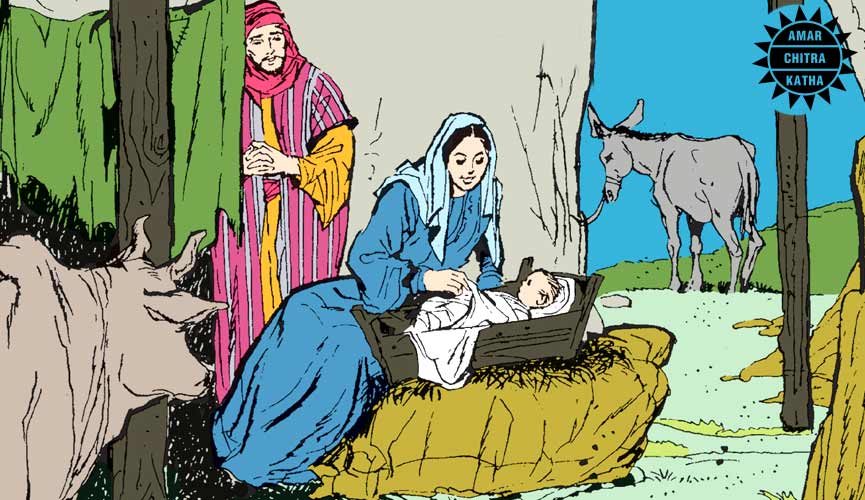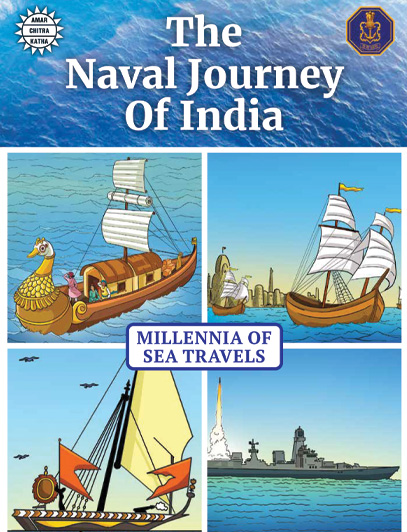Celebrating Christmas
- December 22, 2020


Celebrating Christmas
- December 22, 2020
By Srinidhi Murthy

Christmas is celebrated with great pomp and enthusiasm all over the world a few days prior to the beginning of a new year. The history of Christmas celebrations dates back to the emergence of Christianity in the country. India had been a British colony till 1947. Still, the tradition of celebrating Christmas stayed in India even after Independence due to colonialism.

Christmas marks the birth of Jesus Christ, the one who spoke of goodness with wisdom and brought peace to all men through goodwill. According to the New Testament, when the couple, Joseph and Mary, had no room in Jerusalem, they sought shelter in a stable where Jesus was born at midnight. The angels proclaimed the birth of Jesus, who was destined to be the saviour. The shepherds spread this information to others. According to the Gregorian Calendar, this date was December 25th. Hence, Christians celebrate Christmas on this date every year.
To receive more such stories in your Inbox & WhatsApp, Please share your Email and Mobile number.
India was a British colony for around two hundred years. The British had a prominent control over various places in India which led to the spread of Christianity in India. Goa, which has been one of the favourite destinations for Indians to celebrate Christmas, was famous for its Portuguese legacy and Catholic population. Like Goa, Kerala has its own history of Portuguese and British legacy. In 1498, Vasco Da Gama raised Portuguese settlements by establishing sea routes to Kerala. In fact, the British gained Kerala with the alliance of Travancore. Kerala’s Christmas festival is too grand and fascinating to miss, as the state has a large number of Christians who gloriously celebrate the festival.
Having a past of over three hundred years, the Immaculate Conception Cathedral, also known as Samba Kovil, in Pondicherry, is one of the oldest churches which makes it to the list of must-visit during Christmas. The Jesuit fathers came to the French colony of Pondicherry and built three churches that were, eventually, destroyed due to the subsequent wars between the French and Dutch and, further again, during the British rule.

Christmas is celebrated across the nation, especially in the metropolitan cities, with great pomp and vigour. Special festive markets are set up. Streets are decorated with lights and lanterns, men dressed as Santa Claus roam the streets singing “Ho.. Ho.. Ho..” and spreading joy and cheer. Some also distribute sweets and chocolates to kids. Christmas trees are decorated in malls, local shops, and houses. Baking cakes, sharing gifts, and hanging up stockings on Christmas Eve, and attending special mass prayers in a church are some prominent traditions of this festival. Traditional Christmas plum cakes are made with dry fruits soaked in wine for forty days. Interestingly, the first Christmas cake was baked in India by Mambally Bapu from Thalassery, Kerala. Since then a variety of cakes have been baked as a part of the celebrations but plum cakes remain to be a favourite of the majority.
Read the life story of Christ in our title ‘Jesus Christ’ on the ACK Comics app and Kindle. Also available on Amazon, Flipkart, and other major e-tailers.
To receive more such stories in your Inbox & WhatsApp, Please share your Email and Mobile number.

Comic of The Month
The Naval Journey of India Book I
This book is the first of a three-book series that takes a deep and detailed look at India's Naval History and a deep insight into the lives of our men and women in white. But any series on the Indian Navy has to start at the very beginning - exploring India's celebrated maritime history. Join our little hero, Bharat, and his grandfather, Commodore Sagar, as they sail into the deep blue waters of time. Book I of The Naval Journey of India takes a sweeping look at India's maritime endeavours, how the seas impacted us over millennia and how the oceans made us who we are.